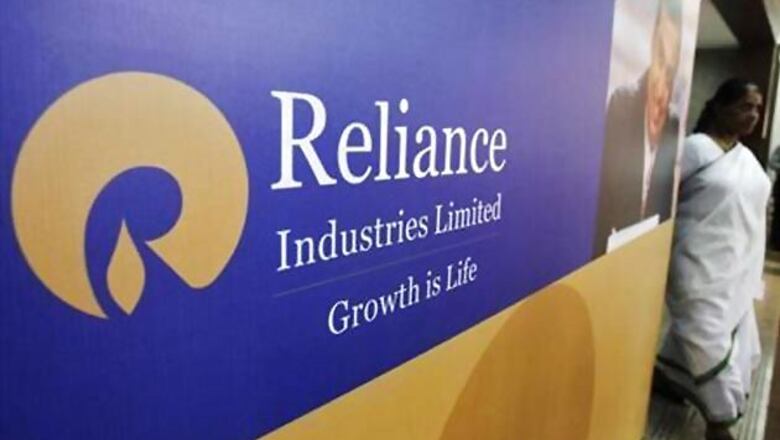
views
New Delhi: India will allow wireless broadband airwave holders to provide voice services if they pay an additional $306 million, a senior government official said on Monday, a move likely to boost billionaire Mukesh Ambani's Reliance Industries Ltd.
Reliance Industries, controlled by India's richest man, is the only company with nationwide fourth-generation (4G) broadband airwaves. The company re-entered the fiercely competitive sector by buying airwaves in a 2010 auction and has so far invested at least $3.5 billion.
Firms which own the broadband wireless access (BWA) airwaves can provide voice services along with high-speed Internet if they pay a fee of 16.58 billion rupees ($306 million), R. Chandrashekhar, the top bureaucrat at the telecommunications ministry, told reporters.
"There is no restriction on the technology that is being used (to provide voice services)," he said.
A move by Reliance Industries, which is still preparing to launch high-speed 4G Internet services, into the voice market would intensify competition and hurt rivals such as Bharti Airtel Ltd and the Indian unit of Vodafone Group Plc.
Reliance Industries shares extended gains to as much as 1 per cent after the news, while shares in Bharti Airtel, the country's top telecommunications carrier, were down nearly 1 per cent.
The Telecom Commission, the highest decision-making body within the ministry, approved the move on Monday, but it must to be formally signed off by the Telecommunications Minister, Chandrashekhar said.
Voice accounts for almost 85 per cent of Indian carriers' revenues, while data is still at a nascent stage. Data services contribute just about 5-6 per cent of the total mobile services revenues as fewer people browse the Internet on phones.
Reliance Industries was not immediately available for a comment.
Separately, the Telecom Commission deferred a plan to bring tower companies under the Unified Licensing regime, which is positive for companies such as Bharti Infratel Ltd.
If brought under the regime, the tower companies would have to pay an annual license fee of 8 per cent of their revenue and would be required to cut foreign shareholding to 74 per cent.
Currently the companies pay no license fee and a foreign shareholder can own as much as 100 per cent of their equity.
















Comments
0 comment